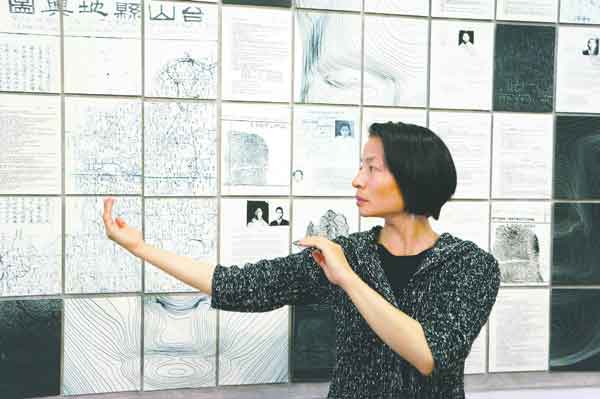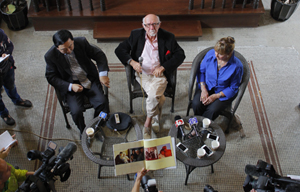Tales of the American dream
 |
|
Choreographer Lenora Lee examines her immigrant grandparents' past through her research and artistic creations. [Photo by Chen Jia/China Daily] |
California-born artist Lenora Lee believes the most romantic story in the world is the one about her Chinese grandparents.
"A discrimination law used to force my grandparents apart, husband in San Francisco, wife in China. It took them 10 years of waiting and struggle to be together," the 39-year-old dancer and choreographer tells China Daily at the de Young Museum in San Francisco.
Creating works that are both personal and historical to her own family, Lee is in the process of developing two performances, The Escape and Rescued Memories. Both are inspired by stories of Chinese women who emigrated to the United States in the late 1800s and early 1900s.
As a de Young Artist Fellow, Lee brought The Escape to the museum in May as a free performance open to the public. "My initial hope was to be able to share these stories (through various artistic disciplines) in a creative and compassionate way that would provide insight into the experiences, hardships, challenges, triumphs, and transformations of the people in these Chinese-American communities over the years," she says. Lee conducted her research in 1996 as an exchange student from UCLA at Peking University.
What inherently came along with the process and research was an education for herself, the cast, and ultimately the audience on the subject of human trafficking and the hardships imposed by the Chinese Exclusion Act of 1882, she says.
As part of an early generation of Chinese immigrants, Lee's grandparents seldom spoke about their history with Lee, one reason being that they had to come to the US under false names. They were called simply "Paper Son" or "Paper Daughter".
In the early 1920s, her grandfather left Taishan, a farming village in Guangdong province, and landed at San Francisco's Angel Island, which was being used at the time as a US Bureau of Immigration inspection and detention facility.
Life was hard for early generations of Chinese immigrants, who could not find work outside of Chinatown. Lee's grandfather could not afford to buy the fake identification papers, which cost as much as $3,000, to bring his wife over from China. Desperate and in despair, he wrote a letter back to her in China and asked her to marry someone else if she didn't want to wait.
"I will wait for you until I die!" his wife replied and her letter gave him new hope. Ten years later, reunited at last, the couple was able to settle down and start a family in San Francisco.
|
 |
|
| Passionate judge learns from handling foreigner-related cases | Love lost down memory lane |

















